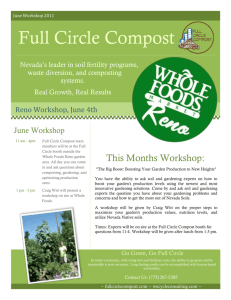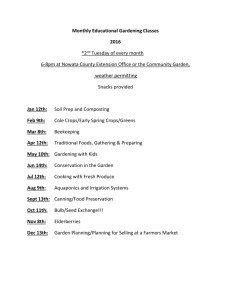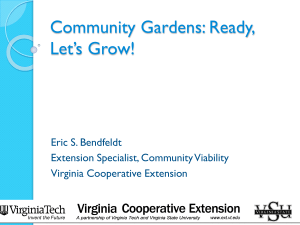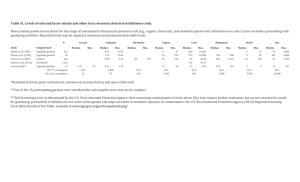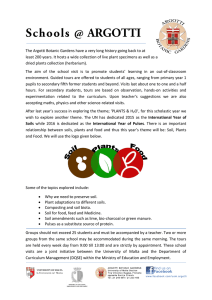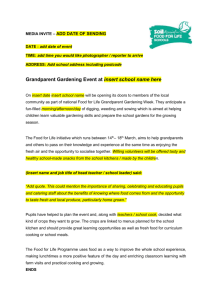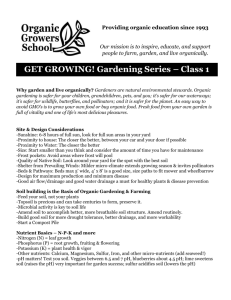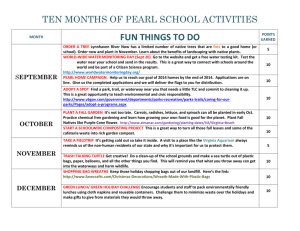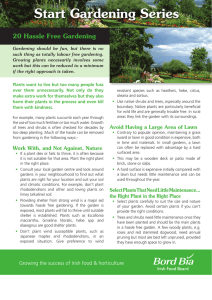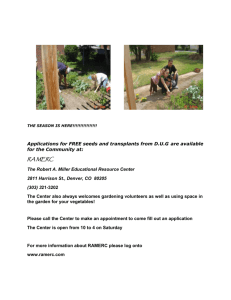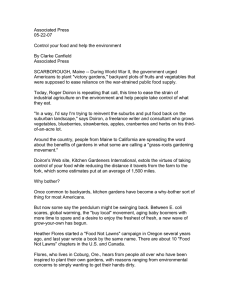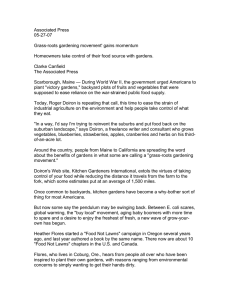Grow Food not Lawns By Bob Jones
advertisement
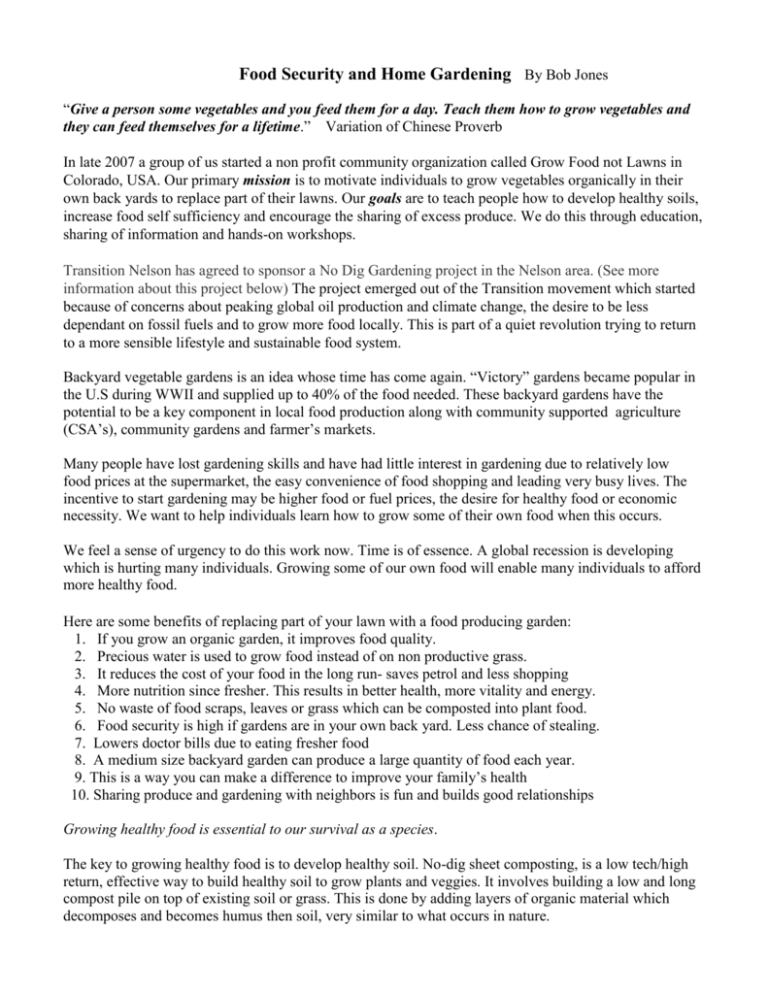
Food Security and Home Gardening By Bob Jones “Give a person some vegetables and you feed them for a day. Teach them how to grow vegetables and they can feed themselves for a lifetime.” Variation of Chinese Proverb In late 2007 a group of us started a non profit community organization called Grow Food not Lawns in Colorado, USA. Our primary mission is to motivate individuals to grow vegetables organically in their own back yards to replace part of their lawns. Our goals are to teach people how to develop healthy soils, increase food self sufficiency and encourage the sharing of excess produce. We do this through education, sharing of information and hands-on workshops. Transition Nelson has agreed to sponsor a No Dig Gardening project in the Nelson area. (See more information about this project below) The project emerged out of the Transition movement which started because of concerns about peaking global oil production and climate change, the desire to be less dependant on fossil fuels and to grow more food locally. This is part of a quiet revolution trying to return to a more sensible lifestyle and sustainable food system. Backyard vegetable gardens is an idea whose time has come again. “Victory” gardens became popular in the U.S during WWII and supplied up to 40% of the food needed. These backyard gardens have the potential to be a key component in local food production along with community supported agriculture (CSA’s), community gardens and farmer’s markets. Many people have lost gardening skills and have had little interest in gardening due to relatively low food prices at the supermarket, the easy convenience of food shopping and leading very busy lives. The incentive to start gardening may be higher food or fuel prices, the desire for healthy food or economic necessity. We want to help individuals learn how to grow some of their own food when this occurs. We feel a sense of urgency to do this work now. Time is of essence. A global recession is developing which is hurting many individuals. Growing some of our own food will enable many individuals to afford more healthy food. Here are some benefits of replacing part of your lawn with a food producing garden: 1. If you grow an organic garden, it improves food quality. 2. Precious water is used to grow food instead of on non productive grass. 3. It reduces the cost of your food in the long run- saves petrol and less shopping 4. More nutrition since fresher. This results in better health, more vitality and energy. 5. No waste of food scraps, leaves or grass which can be composted into plant food. 6. Food security is high if gardens are in your own back yard. Less chance of stealing. 7. Lowers doctor bills due to eating fresher food 8. A medium size backyard garden can produce a large quantity of food each year. 9. This is a way you can make a difference to improve your family’s health 10. Sharing produce and gardening with neighbors is fun and builds good relationships Growing healthy food is essential to our survival as a species. The key to growing healthy food is to develop healthy soil. No-dig sheet composting, is a low tech/high return, effective way to build healthy soil to grow plants and veggies. It involves building a low and long compost pile on top of existing soil or grass. This is done by adding layers of organic material which decomposes and becomes humus then soil, very similar to what occurs in nature. Benefits of this approach: 1. Easy to learn and do- you can set up a small garden in an afternoon yourself. 2. Low cost- most materials are free and readily available 3. Minimum of effort with no digging involved unless present soil is heavily compacted 4. Doesn’t disturb worms, micro- organisms or fungi in the underlying soil 5. Doesn’t bring up buried weed seeds to the surface where they can germinate and grow 6. A thick mulch of organic material: a. Provides low maintenance because it smothers most weeds b. Retains moisture and shades the soil therefore saving water c. Provides food and protection for worms and micro organisms which help develop soil 7. Ideal for doing together in neighborhood groups which builds community and is fun. See http://www.transitiontowns.org.nz/node/1383 for more information on no dig gardens Two books I recommend: Lasagna Gardening by Patricia Lanza on the no dig technique and Four Season Harvest by Eliot Coleman as a good all around book on gardening. How to get involved: • Start or expand your own food producing garden • Attend a no dig gardening workshop and possibly host a workshop. You will get help setting up a garden. • Support the No Dig project work with your time and ideas. • Join or form a neighborhood gardening group to help each other and share excess produce • Sign up for our e-mail newsletter. • Contact Bob Jones or Sandra Oddie if you have questions or suggestions We need volunteers who are interested in helping make this worthwhile project a success. We hope to hear from you. For more information about the workshops or to get involved, contact Sandra Oddie at 546 5545 or bobjonesinnz@gmail.com
